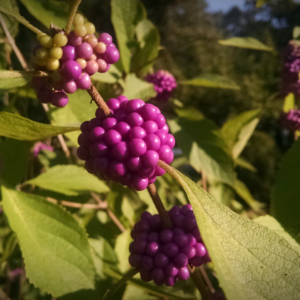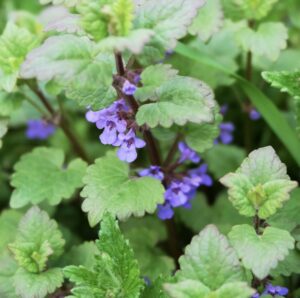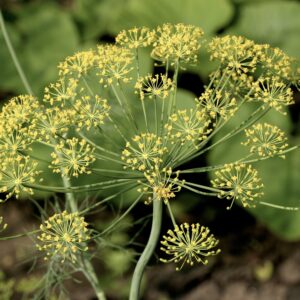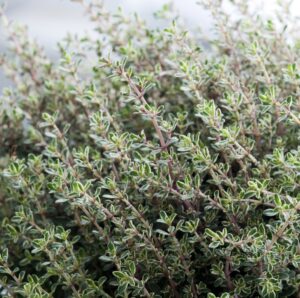Mosquitos can limit our enjoyment of the outdoors more than nearly any other critter. They can take a beautiful summer evening outside and turn it into a night of itching and torment for you and your family. However, if chemical repellents aren’t your thing, consider cultivating garden plants that naturally repel mosquitoes thanks to the aroma of their natural oils.
Growing these mosquito-repellent plants isn’t enough to keep pests at bay. You must release the essential oils of the plants to improve their insect-repelling potential. Toss some plant cuttings onto the grill (most relevant when the plants are known for their culinary value). Chop the plants’ leaves and stems and spread them throughout your lawn and outdoor living areas. If you’re short on time before heading outside, simply place some plant stems in high-traffic areas to release mosquito-repelling oils with each step.
Mosquitos can limit our enjoyment of the outdoors more than nearly any other critter. They can take a beautiful summer evening outside and turn it into a night of itching and torment for you and your family. However, if chemical repellents aren’t your thing, consider cultivating garden plants that naturally repel mosquitoes thanks to the aroma of their natural oils.
Growing these mosquito-repellent plants isn’t enough to keep pests at bay. You must release the essential oils of the plants to improve their insect-repelling potential. Toss some plant cuttings onto the grill (most relevant when the plants are known for their culinary value). Chop the plants’ leaves and stems and spread them throughout your lawn and outdoor living areas. If you’re short on time before heading outside, simply place some plant stems in high-traffic areas to release mosquito-repelling oils with each step.

Callicarpa Americana has tiny white blooms that aren’t particularly attractive, but the brilliant magenta fruit clusters make this small shrub stand out in the landscape. The Lamiaceae family comprises various mints, including beautyberry plants. The fragrant oils emitted when the leaves of the beautyberry are crushed repel mosquitos, and the berries can remain well into the winter, attracting and feeding songbirds and small mammals.
The same plants that keep your cat entertained, may also keep you safe from mosquito bites. For a bite-free relaxation zone, scatter some clippings around the pool and terrace. Try the ‘Walker’s Low’ variety, which blooms from late spring to mid-summer and tolerates dry soils.


Cymbopogon citratus’ natural oils manage to smell just like actual lemons, only better. Lemongrass is a common ingredient in Asian cuisine, and its subtle scent provides a citrus accent to some perfumes. Lemongrass is a delicate plant that will not survive the winter in zones below 9, yet it grows swiftly in containers. For mosquito repellent effectiveness and pleasant perfume, coarsely slice the strappy leaves of this plant and strew them around your deck during your next party.
Marigolds have a distinct smell that can only be described as unpleasant. These mosquito-repelling annuals are simple to raise from seed and make a lovely addition to a flowery vegetable garden, where they may also deter other insect pests such as nematodes. The ingredient in marigolds that makes them repel insects is pyrethrum, which is also found in many organic insecticides.


If you grow mint (Mentha spp. ), you can make the perfect mint mojito and drink it outside without being bothered by insects. Mint plants repel mosquitoes in all forms, and there are more variations than you might think. Discover the tiny differences between spearmint and peppermint, or marvel at how like the chocolate mint plant smells to a candy dish. All mint kinds spread like wildfire, so collect them liberally in your quest to rid your yard of mosquitoes.
Although lavender producers prize the purple flower spikes for their smell, the pleasant soapy scent of lavender extends to the foliage as well. It’s a fact that mosquitoes despise this scent, and the pleasant scent of lavender allows you to rub the plants on your skin as a natural repellent. As a skin preparation, finely slice the plants and blend with sweet almond oil, or smash the plants and apply to skin and clothing in a hurry.


Rosmarinus officinalis, has been utilized as natural pest control for years because insects avoid its piny aroma. A grill’s rosemary-laden smoke is particularly efficient in keeping mosquitoes away from an outdoor location, and it will also flavor your meats. Rosemary tends to dry out between waterings and needs full sun to prevent needle drops.
Lantana (Lantana Camara) have such a strong anti-mosquito impact that it was reported in a scholastic journal: “lantana flower extract in coconut oil gave 94.5 percent protection from Aedes albopictus and Aedes aegypti mosquitoes,” according to the Publication of the American Mosquito Control Association (yes, there is such a journal). 2 In fact, the study discovered that this oil concoction kept mosquitoes away for an average of two hours. Lantana flowers are easy to grow in warm, sunny locations, and they also attract butterflies.


Fennel plants (Foeniculum vulgare) are frequently overlooked in favor of more compact plants in herb gardens, although they offer a variety of purposes in addition to mosquito-repelling properties: The feathery plants are as attractive as any tall garden grass, and the chopped leaves taste great in salads and soups. The leaves also serve as a home for swallowtail butterfly caterpillars in the yard. Bronze fennel is particularly attractive, and it self-seeds to provide a gorgeous colony the following season.
Eucalyptus (Eucalyptus cinerea) is an Australian native tree that can grow up to 60 feet tall in a few years. Many gardeners prefer to grow eucalyptus as a potted plant because it is a delicate plant that will not withstand a strong winter. Choose a fast-growing species like E. globulus subsp. bicostata for short-term potting, as it will provide you with enough scented leaves to harvest for mosquito repelling. Choose a slow-growing eucalyptus like E. vernicosa for a plant that will last several years in a pot. Full sun and good soil are ideal for Eucalyptus plants.


The fast-growing leaves of the basil plant repel insects as well as are a tasty addition to pestos and salads. When it comes to repelling mosquitoes, not all basil varieties are made equal, and the extra-spicy Thai basil, with its narrow leaf and cinnamon aroma, has the best capacity. Basil plants require full sun and warm growth temperatures, making them ideal tomato companions.
Thyme is the last savory herb on the list of insect repellents. Plant thyme in the garden between stepping stones, where your footsteps will break part of the leaves and produce mosquito-repelling oils.

Mosquitos are all ready out this year. Call today (903)399-4497 and ask how our In2Care kit can rid your house and yard of mosquitos today!
Contact The Bug’s End for In2Care Kit pest control treatment to rid you of these blood sucking insects. (903) 399-4497
If you enjoyed this article, you may also like: Texas Mosquito Control
